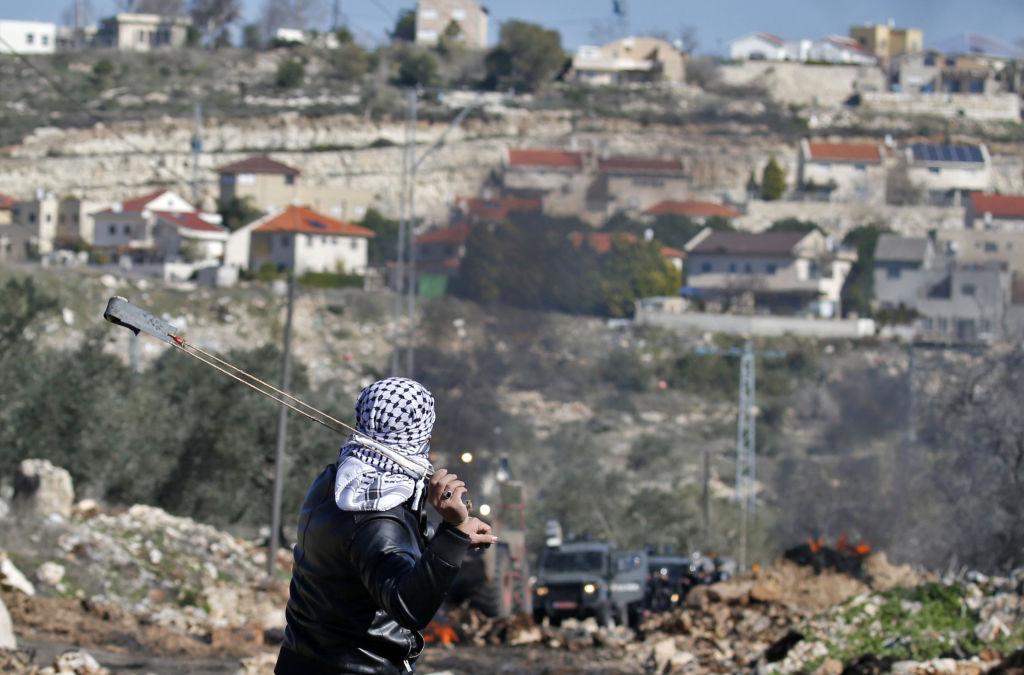More settler homes announced in 100 days since Trump became president than ever before
Palestinian Authority President Mahmoud Abbas and President Trump expected to discuss accelerating rate of settlement building and peace process in first face to face talks in DC

Your support helps us to tell the story
From reproductive rights to climate change to Big Tech, The Independent is on the ground when the story is developing. Whether it's investigating the financials of Elon Musk's pro-Trump PAC or producing our latest documentary, 'The A Word', which shines a light on the American women fighting for reproductive rights, we know how important it is to parse out the facts from the messaging.
At such a critical moment in US history, we need reporters on the ground. Your donation allows us to keep sending journalists to speak to both sides of the story.
The Independent is trusted by Americans across the entire political spectrum. And unlike many other quality news outlets, we choose not to lock Americans out of our reporting and analysis with paywalls. We believe quality journalism should be available to everyone, paid for by those who can afford it.
Your support makes all the difference.US President Donald Trump is hosting Palestinian leader Mahmoud Abbas for White House talks which US officials hope could restart the Middle East peace process - but other observers are not so hopeful.
While the two leaders have exchanged letters and phone calls Wednesday will be their first face-to-face meeting.
The Trump White House is expected to ask the Palestinian Authority (PA) president to take steps towards rekindling the long-stalled peace talks with Israel, including ending Palestinian anti-Israeli rhetoric, the incitement of violence, and support for Palestinians in Israeli jails, according to officials who spoke to Reuters on condition of anonymity.
Mr Abbas, meanwhile, is looking for US commitment to improving dire Palestinian economic conditions, as well as promises on reining in Israeli settlement building in the West Bank, and letting go Mr Trump’s campaign promise to move the US embassy to Israel from Tel Aviv to Jerusalem, which both parties consider their capital.
While Israeli Prime Minister Benjamin Netanyahu says that the Palestinian failure to recognise Israel as a Jewish state is the biggest obstacle to peace, settlement building, which has increased year-on-year under his right-wing coalition government, is viewed internationally as one of the major stumbling blocks to a lasting peace deal.
Since Mr Trump - widely viewed to be more sympathetic to Israeli interests than his predecessor Barack Obama - entered office in January, the number of planning permits approved for building on Palestinian land in the West Bank and East Jerusalem has skyrocketed.
The Israeli government announced more than 11,000 new settler homes in the West Bank, as well as the retroactive legalisation of 4,000 “outpost” Jewish homes built on private Palestinian land.
A further 15,000 new settlement homes in East Jerusalem were announced by Israel’s housing minister in April.
The bold moves are believed to have been encouraged by Mr Trump's election victory.
The total settler population in the West Bank is thought to be 550,000 strong, or 13 per cent of Israel’s population - but the huge number of new units announced in just the first 100 days of the Trump presidency could see that figure soar.
While the international community views all Israeli construction over the 1967 Green Line as illegal, Mr Trump has blown hot and cold over the subject.
During his campaign, the president had said the Israeli government should “keep going” with the construction of new settlements, but walked back some of that language after entering office, calling new construction “not good for peace”.
He told Mr Netanyahu during a news conference in Washington DC in February that while Israel is the US’ “cherished ally” he would like to see his counterpart “hold back a little bit” on settlement building.
Mr Trump is expected to reiterate that settlement construction does not advance peace prospects in his meeting with Mr Abbas, but observers remain unconvinced any concrete steps will be taken.
“I have, and most Palestinians have, zero expectations of [the talks], Diana Buttu, a Ramallah-based political analyst and former advisor to Palestine Liberation Organisation (PLO) chair and PA President Mahmoud Abbas, told The Independent.
“When I look at what [Mr Trump] says and does nothing makes me believe he will really try to end the occupation or be able to challenge Israel. Just look at settlement growth since he became president. Abbas will get nothing out of this meeting.”
Vice President Mike Pence told reporters on Tuesday, the eve of Mr Abbas’ visit, that the US was still “seriously considering” moving the US embassy to Jerusalem, as per Mr Trump’s campaign promise.
The suggestion had prompted Mr Abbas to write to the US president warning that such a move could incite violence that could “open the gates of hell.”
Mr Trump appears to sincerely want to secure peace in the intractable Israeli-Palestinian conflict, putting his son-in-law Jared Kushner in charge of brokering a peace deal.
“I want to see peace with Israel and the Palestinians,” he reiterated in an interview with Reuters last week. “There is no reason there's not peace between Israel and the Palestinians - none whatsoever."
Join our commenting forum
Join thought-provoking conversations, follow other Independent readers and see their replies
Comments